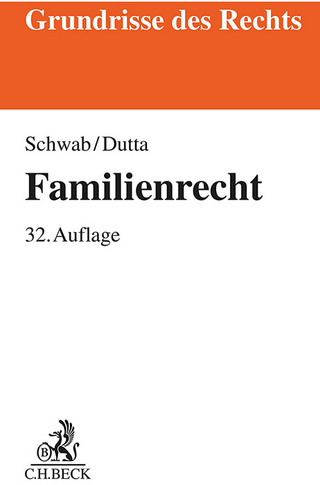
Liberal Child Welfare Policy and its Destruction of Black Lives
Routledge (Verlag)
978-0-8153-6327-9 (ISBN)
How can we end the inter-generational cycle of poverty and dysfunction in the US's urban ghettos?
This ground-breaking and controversial book is the first to provide a child-centered perspective on the subject by combining a wealth of social science information with sophisticated normative analysis to support novel reforms—to child protection law and practice, family law, and zoning— that would quickly end that cycle.
The rub is that the reforms needed would entail further suffering and loss of liberty for adults in these communities, and liberal advocacy organizations and academics are so adult-centered in their sympathies and thinking that they reflexively oppose any such measures. Liberals have instead promoted one ineffectual parent-focused program after another, in an ideologically-driven quest for the magic pill that can save both adults and children in these communities at the same time.
This `insider critique’ of liberal child welfare policy reveals a dilemma that liberals have yet to face squarely: there is an ineradicable conflict of interests between many young children and their parents, especially in areas of concentrated poverty, and one must choose sides.
It is a must read for legal academics, political scientists, urban policy experts, as well as professionals working in social work, law, education, urban planning, legislative offices, and administrative agencies.
James G. Dwyer is the Arthur B. Hanson Professor of Law at William & Mary School of Law, USA, where he teaches Youth Law, Family Law, and Law & Social Justice. He has previously served as Guardian ad Litem for children in the Albany, NY area; on the Virginia Governor's Task Force on Expediting Adoptions; and on the Virginia Bar Association Family Law Legislation Committee. He authored the book The Relationship Rights of Children, as well as books on regulation and financing of schools and on children’s moral status, in addition to dozens of articles on child welfare law.
Acknowledgements; Introduction; PART I. THE CYCLE; Chapter 1: The world black children enter Black America; Inner-city impoverished neighborhoods; Parental dysfunction; Community dysfunction; Chapter 2: How we perpetuate the cycle; Pre-natal harm; The state’s bad parentage decision-making; Attachment failure; Hostile residential environment; Foster care decision-making; Lack of preparation for school; Bad schools; Direct neighborhood effects; PART II. BREAKING THE CYCLE; Chapter 3: Conception and pre-natal life; Prevent people unfit to parent from Conceiving; Prevent pregnant women from harming the fetus; Justifying pregnancy-related coercion; Chapter 4: Sparing children from unfit parents; Steps to appropriate state parentage decision-making for newborns; Justifying better parentage decision-making; Chapter 5: Separating children from bad neighborhoods; Failure of the liberal approach; Family law decisions that can relocate children; No-child residential areas; Justifying separation of children from blight; PART III. LIBERAL SUPPORTS FOR THE CYCLE; Chapter 6: Liberal’s search for the Holy Grail; The magic pill for reducing maltreatment rates; Fighting back against the carceral state by imprisoning babies; Chapter 7: Understanding and overcoming liberal resistance; The liberal mindset; The conservative mindset; Conclusion; Appendix; Index
| Erscheinungsdatum | 25.08.2018 |
|---|---|
| Verlagsort | New York |
| Sprache | englisch |
| Maße | 174 x 246 mm |
| Gewicht | 430 g |
| Themenwelt | Sachbuch/Ratgeber ► Gesundheit / Leben / Psychologie |
| Recht / Steuern ► EU / Internationales Recht | |
| Recht / Steuern ► Privatrecht / Bürgerliches Recht ► Familienrecht | |
| Recht / Steuern ► Strafrecht ► Kriminologie | |
| Sozialwissenschaften ► Pädagogik ► Sozialpädagogik | |
| Sozialwissenschaften ► Politik / Verwaltung ► Staat / Verwaltung | |
| Sozialwissenschaften ► Soziologie | |
| ISBN-10 | 0-8153-6327-3 / 0815363273 |
| ISBN-13 | 978-0-8153-6327-9 / 9780815363279 |
| Zustand | Neuware |
| Informationen gemäß Produktsicherheitsverordnung (GPSR) | |
| Haben Sie eine Frage zum Produkt? |
aus dem Bereich


